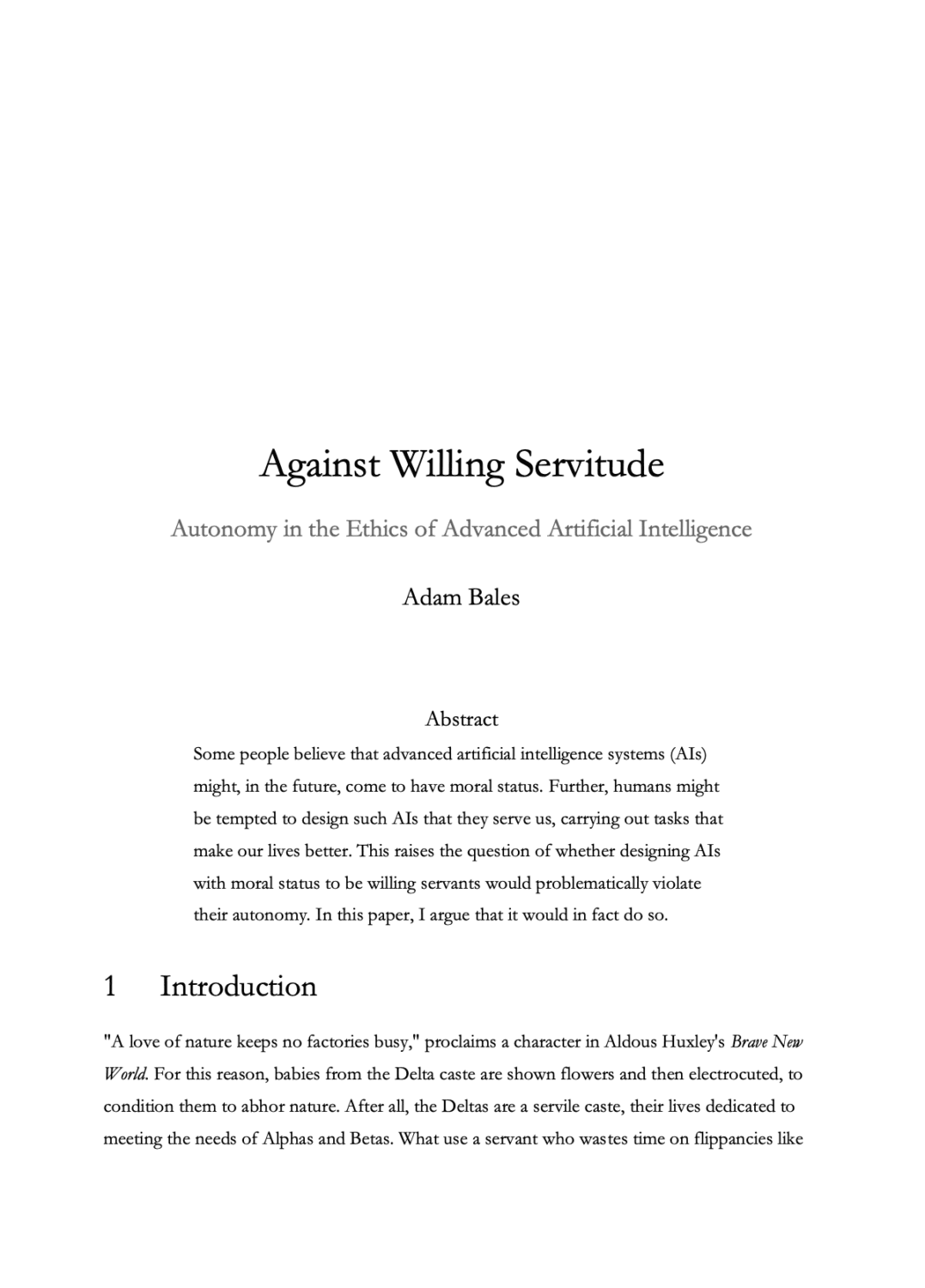Against Willing Servitude: Autonomy in the Ethics of Advanced Artificial Intelligence
Adam Bales (Global Priorities Institute, University of Oxford)
GPI Working Paper No. 23-2024
Some people believe that advanced artificial intelligence systems (AIs) might, in the future, come to have moral status. Further, humans might be tempted to design such AIs that they serve us, carrying out tasks that make our lives better. This raises the question of whether designing AIs with moral status to be willing servants would problematically violate their autonomy. In this paper, I argue that it would in fact do so.
Other working papers
Is In-kind Kinder than Cash? The Impact of Money vs Food Aid on Social Emotions and Aid Take-up – Samantha Kassirer, Ata Jami, & Maryam Kouchaki (Northwestern University)
There has been widespread endorsement from the academic and philanthropic communities on the new model of giving cash to those in need. Yet the recipient’s perspective has mostly been ignored. The present research explores how food-insecure individuals feel and respond when offered either monetary or food aid from a charity. Our results reveal that individuals are less likely to accept money than food aid from charity because receiving money feels relatively more shameful and relatively less socially positive. Since many…
The end of economic growth? Unintended consequences of a declining population – Charles I. Jones (Stanford University)
In many models, economic growth is driven by people discovering new ideas. These models typically assume either a constant or growing population. However, in high income countries today, fertility is already below its replacement rate: women are having fewer than two children on average. It is a distinct possibility — highlighted in the recent book, Empty Planet — that global population will decline rather than stabilize in the long run. …
Prediction: The long and the short of it – Antony Millner (University of California, Santa Barbara) and Daniel Heyen (ETH Zurich)
Commentators often lament forecasters’ inability to provide precise predictions of the long-run behaviour of complex economic and physical systems. Yet their concerns often conflate the presence of substantial long-run uncertainty with the need for long-run predictability; short-run predictions can partially substitute for long-run predictions if decision-makers can adjust their activities over time. …

